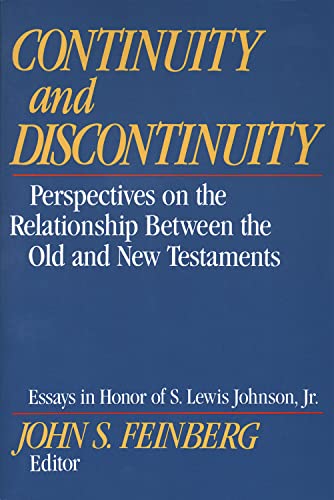The Incarnation of God. An Introduction to Hegel’s Theological Thought as Prolegomena to a Future Christology
Written by Hans Küng Reviewed By M. AlsfordIt is an index of the state of contemporary systematic theology in the English-speaking world that while this important work, published in Germany in 1970, was translated into Italian, French and Spanish by 1974, an English translation only appeared in 1987. We owe Dr J. R. Stephenson an immense debt of gratitude for undertaking the translation of this substantial and complex work.
It is the very complexity of this work which has placed this reviewer in a rather difficult position as regards assessing its value for the readers of a primarily undergraduate journal. There is clearly no doubt that Küng’s treatment of Hegel’s theological significance is a masterly and unique work which serves to introduce an extremely difficult and obtuse thinker to theologians who have yet to engage with him. However, that being the case, and Küng’s own clarity of thought and presentation notwithstanding, it has to be said that this book has as its intended audience those for whom the carefree days of undergraduate theological study are but a passing memory. The level of complexity is, by the very nature of the subject matter, far beyond that which an undergraduate could reasonably be expected to master. However, having said this, I would want to say that this is a book that all those engaged in the study of modern theology ought to be aware of and, further, that all those responsible for teaching courses in this area ought to have read.
That Hegel has been a major influence upon the modern theological enterprise is a common place observation. However, Kung manages to explore this indebtedness with a rare balance of clarity and sophistication. He begins by examining the development of Hegel’s thought with reference to his familial, social and educational background. He considers his early attitude to religion and his relationship to Enlightenment modes of thought and their accompanying attitudes. In this Küng gives us a very useful picture of the Enlightenment man and his disposition towards the Christian faith which is fascinating in itself. This line of analysis is continued in a section concerning Hegel’s attitude to the person of Jesus, who ‘had a serious rival in one no less good: Socrates’ (p. 63). Küng brings out in his discussion of the Hegelian critique of religion the notion of a resurrected Christ as an unhelpful distraction from the importance of ‘the earthly Jesus as an ideal of virtue’ (p. 71), and there is an interesting section, attendant to this, dealing with Hegel’s question ‘How did the proclaimer become the proclaimed?’ The indebtedness of Hegel to Kantian thought on these matters is also clearly spelt out.
With chapter three we see Küng beginning his treatment of Hegel’s own distinctive form of speculative philosophizing, nurtured during his Frankfurt days. It is here that we see Hegel’s abandonment of the Enlightenment notion of Jesus as virtuous teacher, in favour of an understanding of him as in some way expressive of the unity of God and man. This notion of the essential unity between God and man represents an important reorientation away from the Kantian understanding of religion as something noumenal and other-worldly towards a more immanent conception of humanity’s experience of God. Küng captures this point when he writes: ‘Fichte, Schelling and Hegel were agreed on the rightfulness of the shift of consciousness from the hereafter to the here-and-now’ (p. 189).
The significance of the incarnation of the Son of God for Hegel can only readily be understood in the light of his overall ontology where the Spirit as unconscious universality comes to awareness of itself through a process of self-othering. Hegel regards the Christian notion of God’s differentiation of himself as Father and Son and the Son’s subsequent alienation from the Father through the incarnation as expressive of this truth of speculative thought: ‘Hegel advocates the concrete God, and the concrete God is a living God, the God who externalises himself and becomes man, who passes through a “life-history” ’ (p. 210). Chapters five and six deal with this issue and those related to it in considerable depth.
In chapter seven Küng examines Hegel’s idiosyncratic, and some might say notorious, understanding of world history as this relates both to the place and significance of the person of Christ in it and as the mode of the World Spirits coming to consciousness. Gone completely is Hegel’s view of Christ as of equal significance to Socrates, for example; the notion of the God-man is now central to Hegel who sees reconciliation with God as the unification of the finite with the infinite (cf. p. 328f.).
The eighth and final chapter bears the title Prolegomena to a Future Christology. In it Küng attempts to provide us with an insight into the various reactions to Hegel’s thought, coupled with his own contribution to the debate. Although he makes a probably less than serious reference to this present work as an attempt to ‘penetrate the “opponents’ stronghold” ’ (p. 413), his avowed concern here is ‘not to offer any definitive conclusions but simply to break more new ground by way of discussion’ (p. 413).
There is no way in which my scant few comments can possibly do justice to a work of scholarship of this kind or even hope to convey an adequate sense of its breadth of content and overall theological application. For this reason I feel it appropriate to let the author himself have the last word as it seems to me that he is best placed to describe what he has done and what it is he hopes to have achieved:
From start to finish we have been involved in constant debate with both Hegel and Christology. Each of the seven chapters has worked its way like an inward-moving spiral through five interlocking layers of material, starting with Hegel’s life and work, then focusing in turn on the general development of his thought, the contemporary intellectual milieu, and the unfolding of his Christology, and ending in theological debate. This kind of experimental and penetrating initiation and discussion has demanded great patience and many deep breaths from the reader—and before that, of the author …—yet not, we hope, without bestowing on the reader a commanding view of Hegel’s thought along with considerable insight into it. (p. 413).
M. Alsford
Thames Polytechnic







